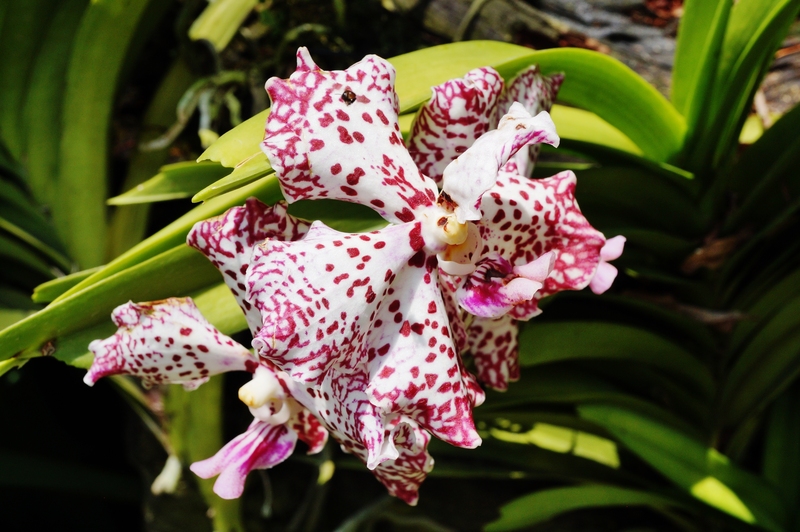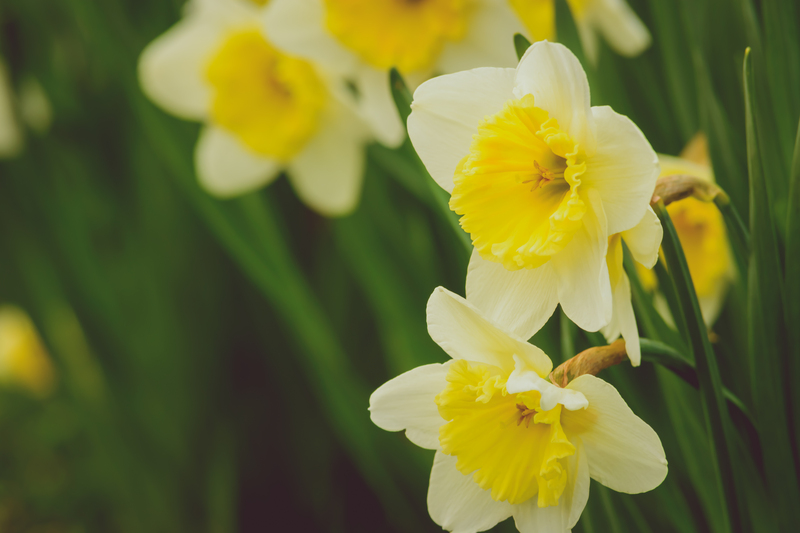Bring Calm to Your Backyard with These Zen Garden Ideas
Posted on 21/08/2025
Bring Calm to Your Backyard with These Zen Garden Ideas
Imagine stepping into a tranquil oasis just outside your door, where the stresses of daily life melt away, replaced by serenity and mindful calm. With the timeless beauty and meditative qualities of a Zen garden, you can transform your backyard into a sanctuary of peace. This comprehensive guide will inspire you with innovative and practical Zen garden ideas to help you craft a calming outdoor retreat.
What Is a Zen Garden?
A Zen garden, also known as a Japanese rock garden or Karesansui, is a minimalist landscape designed to promote relaxation, meditation, and reflection. Traditionally, these gardens use elements like rocks, sand, gravel, moss, and sparse plants to represent natural landscapes in an abstract way. Zen garden design emphasizes simplicity, balance, and symbolism, creating an ideal environment for mindfulness and inner peace.
The Philosophy Behind Zen Gardens
Unlike many lush, Western-style gardens, Zen gardens are rooted in the principles of Zen Buddhism. Every element, from the placement of a stone to the ripple of raked gravel, has symbolic meaning. The designs encourage contemplation and serve as an aid to meditation, inviting you to engage with the garden both visually and mentally.

Benefits of Creating a Zen Garden in Your Backyard
- Promotes Relaxation: The simplicity and orderliness reduce sensory overload, helping you unwind and de-stress.
- Enhances Mindfulness: Raking patterns in gravel and tending to plants can be meditative practices.
- Low Maintenance: With less emphasis on grass and flowers, these gardens require minimal upkeep once established.
- Customizable Size: Whether you have a sprawling yard or a compact patio, a Zen-inspired garden adapts to your space.
- Boosts Aesthetic Appeal: Zen garden design brings timeless elegance and a unique focal point to your backyard.
Essential Elements of a Zen Garden
To create a calming atmosphere, Zen gardens stick to a few fundamental elements, each with its own meaning:
- Rocks and Stones: Represent mountains, islands, or animals, providing structure and symbolic depth.
- Gravel or Sand: Symbolizes water; raked into patterns that mimic waves or ripples.
- Moss: Conveys resilience and tranquility, softening the scene.
- Minimalist Plants: Think Japanese maples, bamboo, or evergreens for lasting greenery.
- Water Features: Small ponds, fountains, or even dry riverbeds evoke the calming sound or look of water.
Inspirational Zen Garden Ideas for Your Backyard
1. Traditional Japanese Rock Garden
For authenticity, construct a classic Zen garden in a corner or a central section of your yard. Use large, smooth stones to create a miniature mountain range, then fill the surrounding space with fine gravel. Rake the gravel in concentric circles or flowing lines to represent water around the "mountains." Add small patches of moss between rocks for a finishing touch.
2. Moss Garden Serenity
Moss gardens embody the essence of tranquil Zen landscapes. Choose a shaded area with moist soil and plant different types of moss to create a lush green carpet. Add simple stone lanterns or stepping stones for structure. Moss not only softens hardscape elements, but also mutes sound, enhancing the atmosphere of peace and calm.
3. Zen Sand Garden Box
If space is limited, opt for a smaller Zen sand garden (often called a desktop or patio Zen garden). Use a wooden frame filled with white sand or fine gravel; arrange a few flat stones inside. This option allows you to practice raking daily, reinforcing mindfulness no matter how small your space.
4. Bamboo Retreat
Bamboo's elegant vertical lines and soft rustling add a dynamic touch to your backyard Zen space. Create a living screen with clumping bamboo varieties to define the garden perimeter for privacy and tranquility. Pair with a stone path and a minimalist bench for meditation.
5. Water Feature Focus
Add a small pond, bubbling fountain, or stone water basin (called a tsukubai) to introduce the soothing sound of running water. Even a dry riverbed lined with pebbles and bordered with large rocks can represent water in a more abstract, low-maintenance style.
6. Minimalist Plant Selection
Choose a restrained plant palette for your Zen backyard retreat. Popular options include:
- Japanese maple (Acer palmatum) - for grace and seasonal color
- Black pine (Pinus thunbergii) - a classic symbol of endurance
- Bamboo - for privacy and vertical interest
- Hostas - for lush foliage and contrast
- Mondo grass or ferns - for groundcover and texture
Remember: Simplicity and thoughtful placement are key!
7. Add a Meditation Space
Designate a quiet area within your Zen-inspired backyard for meditation or yoga. Add a flat stone, wooden platform, or a simple bench to anchor your space. Frame with tall grasses, bamboo, or a privacy screen for extra seclusion and comfort.
8. Pathways of Peace
Use stepping stones, gravel paths, or slate tiles to guide movement through your garden. Paths should curve naturally, inviting slow walks and contemplation. The journey is as important as the destination in a Zen garden design.
9. Incorporate Lanterns and Sculptures
Stone lanterns (toro), Buddha statues, or abstract sculptures can bring subtle symbolism and focal points to your backyard Zen oasis. Use sparingly, integrating these accents so they harmonize with the overall minimalist feel.
10. Embrace Wabi-Sabi
Wabi-sabi is the Japanese philosophy of beauty in imperfection and the passage of time. Incorporate weathered stones, gently aged wood, or moss-covered features to add authenticity and depth to your garden design. Celebrate natural textures, asymmetry, and patina as part of your peaceful retreat.
Tips for Creating a Backyard Zen Garden
- Start Small: Don't worry if you have limited space. Even a single corner or container can become a serene Zen nook.
- Edit Ruthlessly: Less is more. Keep features minimal and thoughtfully arranged.
- Prioritize Natural Materials: Use local stone, gravel, and wood for a harmonious, eco-friendly design.
- Pay Attention to Scale: Arrange rocks and plants in a way that echoes the balance found in larger landscapes.
- Think About Views: Consider how your Zen backyard garden will appear from windows, patios, and walkways.
- Encourage Mindfulness: Add a raking box or sand area for a daily meditative practice.
- Maintain Consistently: Regular tidying, trimming, and raking will keep the space calm and inviting.
Choosing the Right Location
For maximum tranquility, place your backyard Zen garden in a quiet area away from street noise or busy household zones. Natural shade from trees, gentle slopes, or areas protected by fencing or hedges make ideal spots. If space is at a premium, create a focal point near your patio or entryway to maximize enjoyment and visibility.
Optimize Sunlight and Shade
While many Zen gardens thrive in partial shade, some moss-free or dry gardens can bask in full sun. Select plants and materials based on your backyard's light conditions for best results.
How to Maintain Your Zen Garden
Zen landscaping is known for its relative ease of care, but a few simple practices will ensure your backyard oasis stays beautiful:
- Rake gravel: Refresh patterns regularly to keep the surface neat and mindfully maintained.
- Weed often: Prevent unwanted growth so your minimalist design prevails.
- Trim plants: Prune bamboo and shrubs for tidy lines and balanced shapes.
- Clean water features: If you have a pond or fountain, clear debris and ensure water quality stays high.
- Replenish sand/gravel: Top up levels annually for a pristine appearance.
The Best Materials for a Zen Garden
Quality and authenticity matter when it comes to building your own Zen sanctuary. Choose these tried-and-true materials for harmony:
- Fine gravel or white sand for raked areas
- Natural boulders or driftwood for sculptural elements
- Moss for texture and greenery
- Weathered stone lanterns or bowls as focal points
- Stepping stones of granite or slate
Buy from reputable nurseries, stone yards, or garden centers to ensure durability and beauty.

Designing Your Zen Garden: Step-by-Step
- Assess Your Space: Map out how much room you have and which elements you want to include.
- Create a Drawing: Plan a simple sketch using curves, asymmetry, and negative space.
- Prepare the Site: Clear existing grass or debris, lay landscape fabric to prevent weeds, and top with gravel or sand.
- Arrange Rocks and Boulders: Start with odd-numbered groupings and vary sizes for an organic look.
- Add Moss and Plants: Plant carefully to avoid a cluttered feel. Use ground cover to anchor larger elements.
- Install Water Features or Structures: Position lanterns, basins, benches, or pathways where they best support relaxation and flow.
- Rake Gravel or Sand: Create soothing patterns with a rake, refreshing as often as desired for mindfulness.
Bring Calm to Your Backyard with Zen Garden Landscaping
Adopting Zen garden landscaping brings not only style but soothing purpose to your outdoor space. Whether you embark on a full landscape transformation or add a compact raked sand box for daily ritual, these Zen garden ideas foster a sense of peace and wellbeing. With careful selection of plants, stones, and serene accents, you can cultivate a backyard retreat that invites restful meditation and mindful living, right at home.
Start Small--Find Your Moment of Zen
Remember, the heart of a Zen garden isn't perfection--it's the ongoing process of tending, appreciating, and reconnecting with nature.
- Begin with a simple sand box or stone arrangement if you're new.
- Expand over time as inspiration and space allow.
- Make your garden a living, evolving sanctuary for your soul.
Bring calm to your backyard today by letting these Zen garden ideas inspire you. Experience the peace that comes with every thoughtful rake, each arranged stone, and the gentle hush of your new outdoor oasis.
Frequently Asked Questions About Zen Gardens
- What is the purpose of a Zen garden?
Zen gardens are designed to promote contemplation, relaxation, and mindfulness through simplicity and symbolic natural elements. - Are Zen gardens low maintenance?
Yes, especially when compared to traditional lawns or flower beds. Occasional raking, pruning, and weeding keep the space pristine. - Can I create a Zen garden in a small space?
Absolutely! Balcony, patio, and container Zen gardens are popular for their ease and simplicity. - Do Zen gardens have to include water?
No--dry landscape (Karesansui) Zen gardens evoke the presence of water with sand or gravel, requiring no actual water for effect. - What plants are best for backyard Zen gardens?
Choose slow-growing, evergreen, and shade-tolerant plants like moss, bamboo, Japanese maples, and azaleas.
Embrace these ideas as you bring calm to your backyard with a personalized Zen garden, cultivating peace, beauty, and sanctuary just steps from your home.

